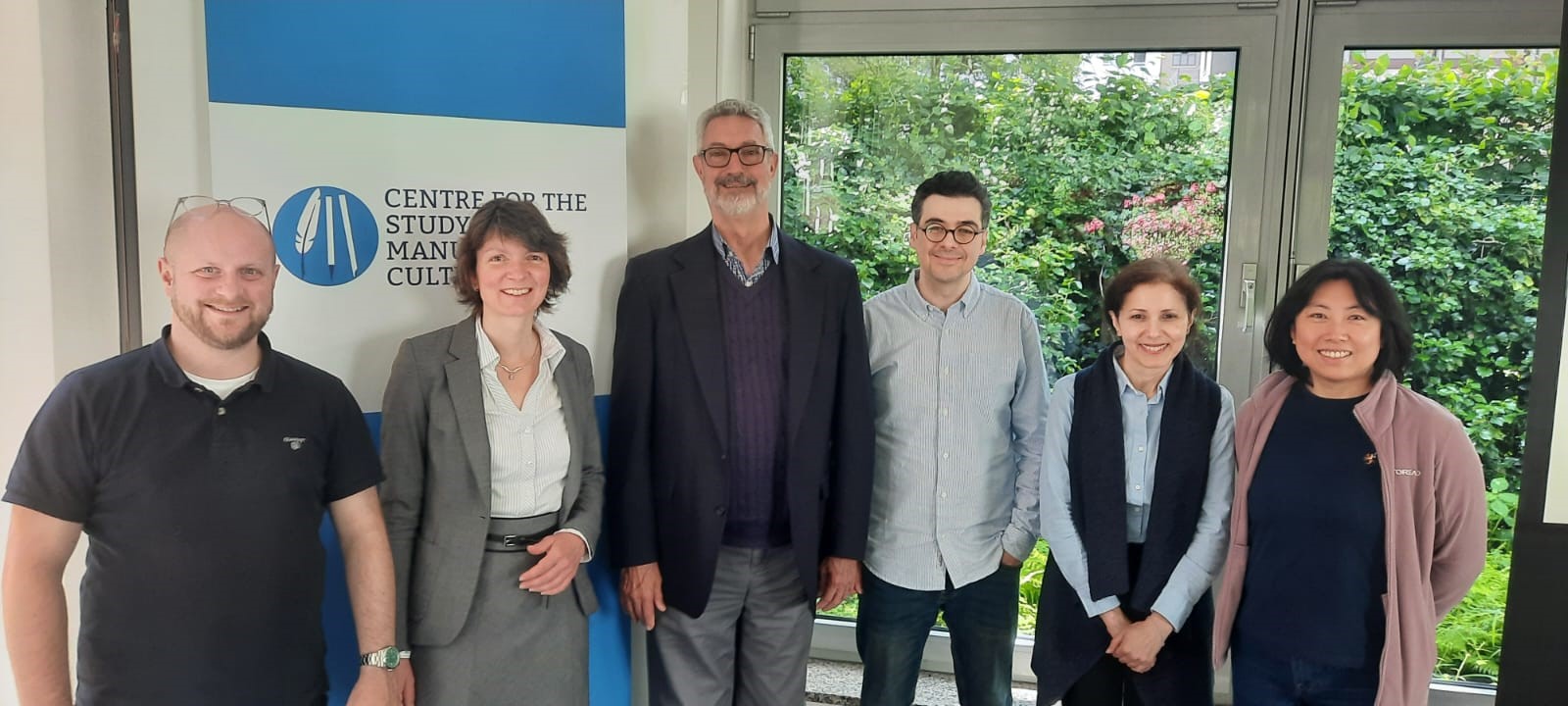Workshop reportMusical Heritage Across Borders
7 June 2024
How did musical heritage disseminate and what was the role of materiality in this process? A workshop on ‘Musical Heritage Across Borders – Materiality as an Indicator of Distribution Channels’ from 29–30 May brought together experts from various cultures and disciplines to discuss these questions.

On the first day of the workshop, which was organised by Yasemin Gökpinar and Christoph Weyer, scholars presented diverse methods to research the provenance of musical manuscripts. Wang Xidan (Zhengzhou University) opened the event with a lecture on ‘The Possibility and Significance of the Yuèshū in Eurasian Cross-cultural Music Historical Research’, highlighting the importance of the Yuèshū for the study of Eurasian music history. Christoph Weyer (CSMC) delivered a presentation on ‘The Đikr al-anġām wa uṣūlihā by ʿAbd al-Qādir ibn Ġaibī’, illustrating how digital databases have transformed research on Arabic music theory. Maḥmūd as-Saʿīd from Cairo illuminated the significance of Arabic music manuscripts for the Arab-Islamic heritage in his paper ‘Maḫṭūṭāt al-mūsīqā al-ʿarabiyya fī turāṯ al-ʿarabī al-islāmī fī l-ʿuṣūr al-islāmī’. The evening keynote, in collaboration with the Institute for Historical Musicology at the Universität Hamburg, featured Dwight Reynolds from the University of Santa Barbara, who traced the journey of an anonymous songbook in ‘Tales of a Songbook’s Travels: From Granada to Tlemcen to Rome to Lebanon’.
On the second day, Saeid Kordmafi from the University of London provided insights into ‘When Anonymous Texts Speak Out! Addressing a Lacuna in Historiography of Classical Iranian Music Through Safavid-Oriented Writings’, discussing the significance of anonymous or pseudonymous texts in the study of classical Iranian music history. Yasemin Gökpınar from Universität Hamburg examined musical visualisations in al-Fārābī’s Kitāb al-Mūsīqī al-kabīr. Soheila Faraji from İstanbul University presented her research on ‘The Amir Khan Gorji Musical Treatise’, a Persian manuscript on Iranian music at the Safavid court. The final presentation by Fahimeh Rahravan (Universität Hamburg) discussed ‘Music Manuscript Cultures in Medieval Iran’, focusing on methods of music notation in the 13th century.
The discussions throughout the workshop were highly stimulating, fostering intense exchange among participants. The workshop not only showcased new research findings but also explored innovative approaches and methodologies. The interdisciplinary collaboration and the diverse cultural backgrounds of the participants enriched the conversations, leading to valuable insights and ideas for future research projects. Overall, the workshop underscored the importance and productivity of intercultural dialogue in the study of musical heritage.


